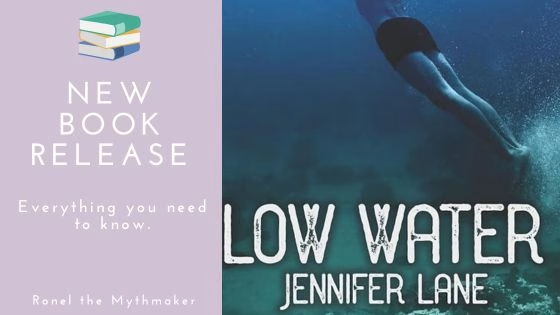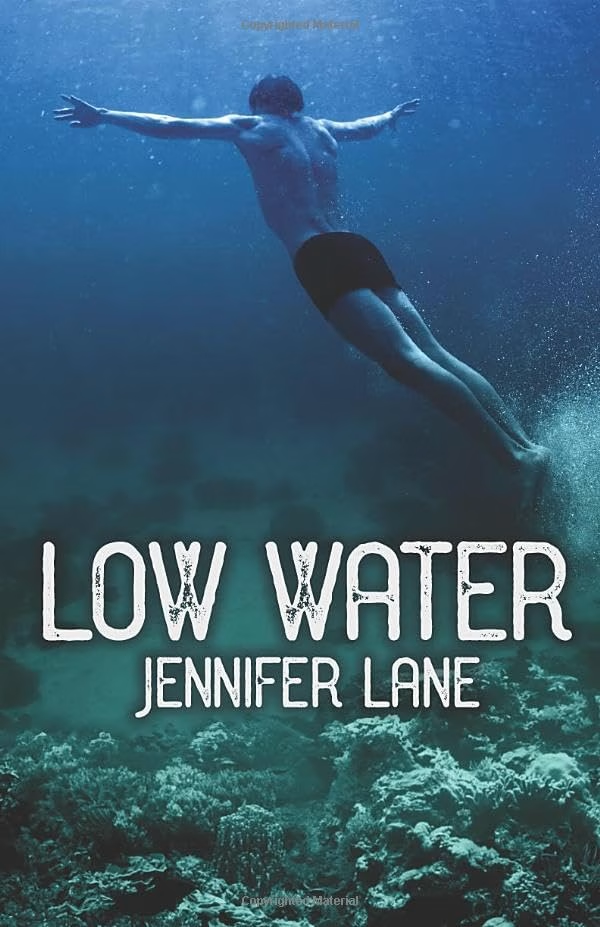Domestic violence is a huge issue. In my country (South Africa) we even have a campaign to end gender based violence printed on shopping bags. Yeah, it’s that bad.

We’re trying to declare this a National Disaster. You can read all about that here.
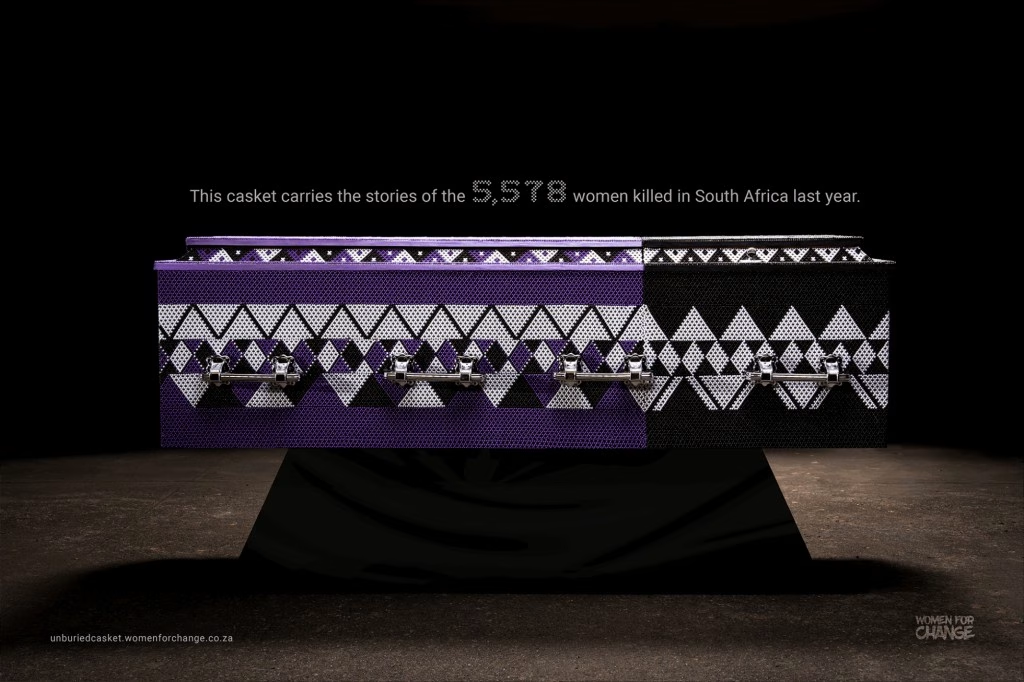
This is a huge issue, and not just in my country. So when author friend Jennifer Lane, a psychologist, published her newest book that involves PTSD and more, I asked that she would write about domestic violence.
Here’s her reply:
When people hear about post-traumatic stress disorder, they often think of military combat. But PTSD can occur after a variety of traumas, including one that’s often misunderstood: domestic violence.
Domestic violence, also known as intimate partner violence, is a pattern of abusive behavior between romantic partners. While abusive female partners do exist, men are more likely to be the abusers in heterosexual relationships.
As a psychologist, I’ve encountered quite a few strong, intelligent women who have felt trapped by domineering partners. In Low Water, Dr. Avery Clarkson is a psychologist who fears she has become one of those women. As Avery strives to help therapy clients recover from PTSD, she’s horrified to realize her own budding trauma at home.
Women who face humiliation, injustice, terror, and pain… Why do they stay? Dr. Lenore Walker’s cycle of violence theory (1979) helps to explain.
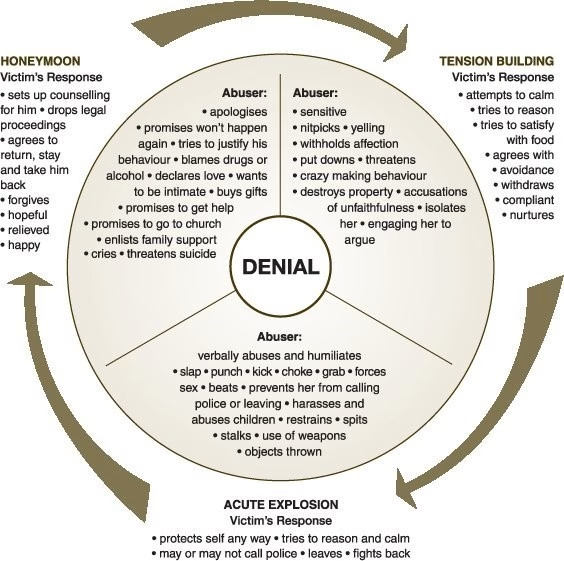
The first two stages of the cycle—tension-building and acute explosion—are pure hell. During the build-up of tension, the woman walks on eggshells and tries to assuage his anger, while the man criticizes and isolates her. Next comes the acute explosion, which often entails physical violence, restraint, and terror.
However, in the “honeymoon” stage, the abuser apologizes and promises to get help and never hurt her again. The woman feels so relieved that she stays with him. Additional factors pressure the woman not to leave, including financial dependence, concerns for children and pets, love of the abuser, and threats of escalating danger if she does try to escape. Also, repetition of this cycle wears down the woman’s self-esteem to the extent that she believes she can’t find a better man or make it alone. She may develop PTSD.
Low Water features a powerful treatment—cognitive processing therapy—to help heal from PTSD. CPT challenges “stuck points”, or beliefs that keep people stuck in trauma. For example, a survivor of domestic violence may tell herself, “I should’ve seen the red flags.” A therapist might ask, “What did you see? What did you know at the beginning of the relationship?” With practice, the survivor learns to talk to herself in more helpful and realistic ways, like, “My intent was to find a life partner, and I fell in love. He showed me no reason to doubt him at the time.”
About the Book
Low Water by Jennifer Lane
Two lives marked by trauma. One chance to rediscover hope.
In the sun-drenched Lowcountry of South Carolina, a swim coach haunted by tragedy and a psychologist devoted to healing cross paths just as their lives unravel.
He once believed Olympic-sized dreams and terrible dad jokes could get him through anything, but waves of grief threaten to pull him under. She has built a career navigating others through pain, yet she struggles to confront her own.
When their worlds collide, Cognitive Processing Therapy for PTSD forces the question: is it possible to dive into the past without drowning? Neither expects the other to become a lifeline. But with connection and courage, they search for a way forward—one stroke at a time.
Striving, tender, and surprisingly funny, this is a story about resilience and learning that the best way out of the deep end is together.
Check it out on Goodreads.
Universal Book Link: https://books2read.com/u/b675ox
About the Author

Psychologist and author Jennifer Lane (“psycho author”) blends sports romance, suspense, and psychology.
Jen, a former college swimmer and volleyball athlete (Honda Award Winner for DIII Athlete of the Year), still loves chlorine and perfect sets.
Her tenth novel, Low Water, follows a swim coach and psychologist healing from trauma. Rivals ignites romance in Ohio State-Michigan coaches. The Blocked trilogy turns hateto love, emphasizing conflict resolution.
Explore her Conduct Series (romantic suspense), thriller Twin Sacrifice, and shorts Swim Recruit and Behind the Catcher’s Mask.
Jen lives in South Carolina with cats Tuxedo and Tessa, crafting stories that spark laughter and tears.
Author Website | Facebook | Amazon
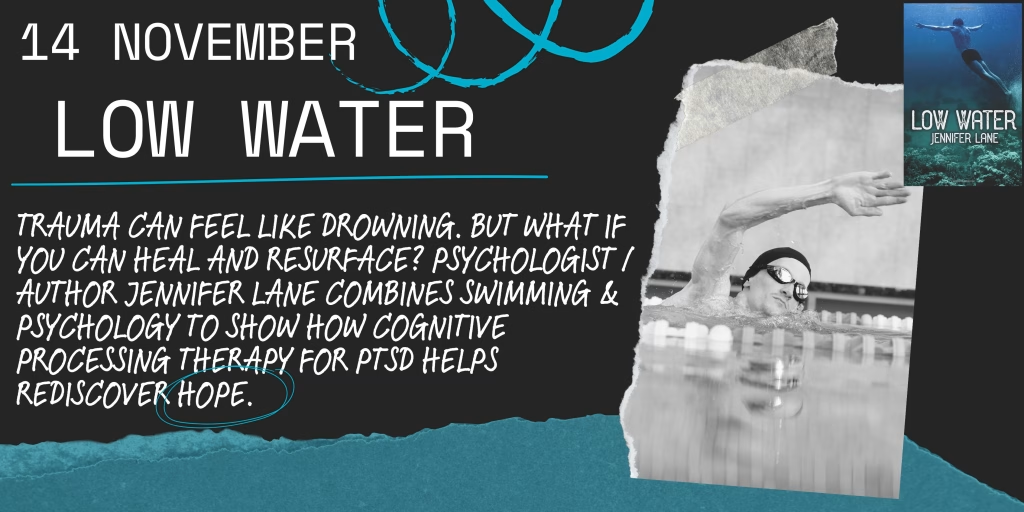
Thanks for explaining how people get pulled into abusive relationships. Any questions for Jennifer?

